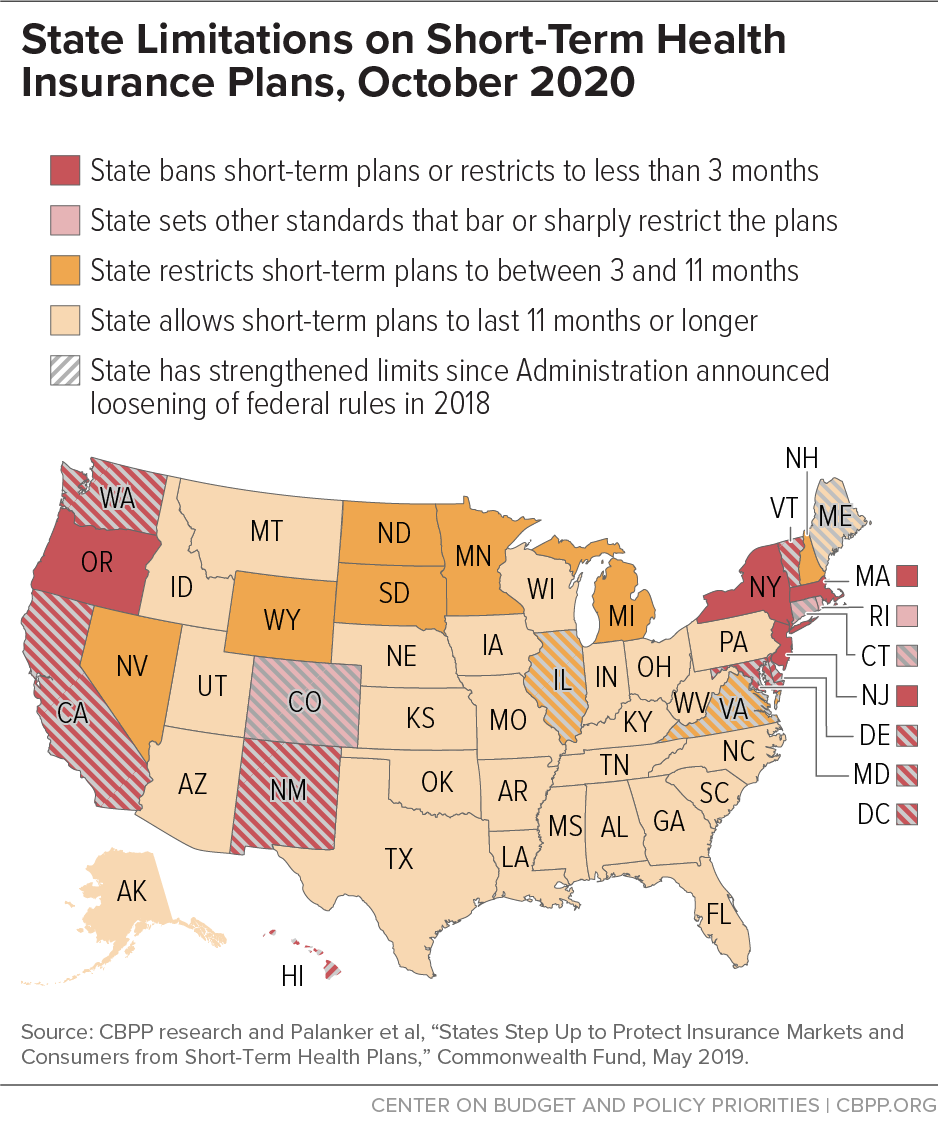Commentary: Growing Evidence Shows Need for Stronger Rules for Short-Term Health Plans
End Notes
[1] Karen Pollitz et al., “Understanding Short-Term Limited Duration Health Insurance,” Kaiser Family Foundation, April 23, 2018, https://www.kff.org/health-reform/issue-brief/understanding-short-term-limited-duration-health-insurance/.
[2] “E&C Investigation Finds Millions of Americans Enrolled in Junk Health Insurance Plans That Are Bad for Consumers & Fly Under the Radar of State Regulators,” House Committee on Energy & Commerce, June 25, 2020, https://energycommerce.house.gov/newsroom/press-releases/ec-investigation-finds-millions-of-americans-enrolled-in-junk-health.
[3] American Cancer Society Cancer Action Network, “Inadequate Coverage: An ACS CAN Examination of Short-Term Health Plans,” May 13, 2019, https://www.fightcancer.org/sites/default/files/ACS%20CAN%20Short%20Term%20Paper%20FINAL.pdf.
[4] Dane Hansen and Gabriela Dieguez, “The impact of short-term limited-duration policy expansion on patients and the ACA individual market,” Milliman Research Report, February 2020, https://www.lls.org/sites/default/files/National/USA/Pdf/STLD-Impact-Report-Final-Public.pdf.
[5] “E&C Investigation,” op. cit.
[6] Shelby Livingston, “Short-Term Health Plans Promoted by Trump Spent Relatively Little on Claims in 2019,” Modern Healthcare, September 29, 2020, https://www.modernhealthcare.com/insurance/short-term-plans-spent-little-medical-claims-2019 and National Association of Insurance Commissioners, “2019 Accident and Health Policy Experience Report,” 2020, https://www.naic.org/prod_serv/AHP-LR-20.pdf.
[7] Sabrina Corlette et al., “The Marketing of Short-Term Health Plans,” Georgetown University Health Policy Institute, January 31, 2019, https://www.rwjf.org/en/library/research/2019/01/the-marketing-of-short-term-health-plans.html; and Reed Abelson, “Without Obamacare Mandate, You ‘Open the Floodgates’ to Skimpy Health Plans,” New York Times, November 30, 2017, https://www.nytimes.com/2017/11/30/health/health-insurance-obamacare-mandate.html.
[8] Christen Linke Young and Kathleen Hannick, “Misleading marketing of short-term plans amid COVID-19,” USC-Brookings Schaeffer on Health Policy, March 24, 2020, https://www.brookings.edu/blog/usc-brookings-schaeffer-on-health-policy/2020/03/24/misleading-marketing-of-short-term-health-plans-amid-covid-19/.
[9] Government Accountability Office, “Private Health Coverage: Results of Covert Testing for Selected Offerings,” August 24, 2020, https://www.gao.gov/assets/710/708967.pdf.
[10] Consumer Representatives to the National Association of Insurance Commissioners, “Report on Testing Consumer Understanding of a Short-Term Health Insurance Plan,” March 15, 2019, https://healthyfuturega.org/wp-content/uploads/2019/04/Consumer-Testing-Report_NAIC-Consumer-Reps.pdf.
[11] “E&C Investigation,” op cit.
[12] Ben Conarck, “A Miami man who flew to China worried he might have coronavirus. He may owe thousands,” Miami Herald, February 24, 2020, https://www.miamiherald.com/news/health-care/article240476806.html.
[13] Emily Curran et al., “In the Age of COVID-19, Short-Term Plans Fall Short for Consumers,” Commonwealth Fund, May 12, 2020, https://www.commonwealthfund.org/blog/2020/age-covid-19-short-term-plans-fall-short-consumers.
[14] Hansen and Dieguez, op cit.

